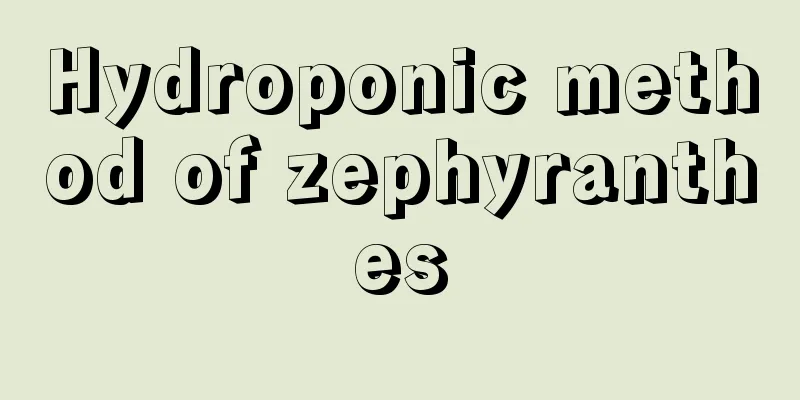Does mint prefer shade or sun? Why does mint grow so soft and thin?

1. Do you prefer shade or sun?Mint is a sun-loving plant. As a long-day crop, it can only grow well if the light time is long enough. If the light is insufficient, it will not only affect its growth, but also reduce the accumulation of peppermint oil and menthol, thus greatly reducing its practical value. Generally speaking, the plant should be planted in a sunny place where it can receive sunlight throughout the day. If it is a potted plant, you can place it in a sunny environment such as a balcony. 2. What to do if it is soft and thin1. Lack of light: Mint is suitable for growing in an environment with sufficient light. If there is a lack of light, it will be difficult for the plant to carry out photosynthesis, and it will also cause it to grow too tall, and the branches and leaves will become soft and thin. In this case, you need to put it in a sunny place so that it can receive sunlight all day. It is not afraid of the sun and does not need shade at noon. 2. Too much water: Mint needs relatively sufficient water in the early and middle stages, but too much water in the potting soil can easily inhibit the respiration of the roots and may also breed bacteria, causing root rot. When watering, you must control the amount of water. If too much water is poured, it needs to be drained immediately, and the soil needs to be loosened appropriately and ventilation needs to be increased to allow the moisture in the soil to evaporate as quickly as possible. If water accumulates for too long, it may cause root rot, and the plant will need to be removed from the pot, pruned, and sprayed with carbendazim for disinfection. 3. The temperature is too low: Although mint is resistant to low temperatures, it is more suitable for growing in a warm climate. If the temperature is below 15°C, its growth will slow down. If the temperature is not high for a long time, it will become soft and thin. Be sure to keep warm and control the temperature between 25-30℃. If it is too cold, you can put a plastic bag on it to keep it warm. 4. Lack of nutrients: Mint does not require too much fertilizer during its growth process, but if there is no fertilizer at all, it will not be conducive to the growth and development of the plant. Generally, when repotting, you need to add sufficient basal fertilizer to the bottom of the pot to continuously provide nutrients. If the growth is poor, you can add appropriate nitrogen fertilizer to promote the development of branches and leaves. |
<<: Is mint an annual herb? How many years can mint be grown?
>>: How to propagate mint and how to use the cut mint
Recommend
Which month is the best time to plant loofah?
Luffa is a vegetable with extremely high nutritio...
Does Mirabilis jalapa prefer shade or sun?
Does Mirabilis jalapa prefer shade or sun? Mirabi...
Is loofah a fruit or a vegetable?
Is loofah a fruit or a vegetable? Luffa is a vege...
The floral symbolism and meaning of Cattleya
The flower language of Cattleya The flower langua...
How to grow potted lucky bamboo to make it more vigorous
Overview of potted lucky bamboo cultivation Lucky...
What is the legend of honeysuckle?
1. Flower language of honeysuckle Its flower lang...
How to grow Euphorbia milii in winter
1. Insulation treatment It does not have good col...
What should I do if the flower stems of Kalanchoe turn black?
Causes of black flower stems If the blackened ste...
How to cut off the head of the new jade ornament
1. Choose the time to behead When beheading it, y...
What does it mean that the iron tree will bloom?
1. Will the iron tree bloom? The iron tree will b...
How to prune the succulent Jade Plant
When to prune the succulent Jade Plant Generally ...
How to take care of the newly bought Daphne
1. Lighting Daphne odora has a strong demand for ...
How many times can green onions be planted in a year?
Shallots belong to the Liliaceae family, Allium g...
Ginger flower pest control
Ginger flower pest control Bacterial canker, rot ...
Can Gardenia survive by cuttings in spring?
1. Can it be inserted alive? The chance of surviv...









